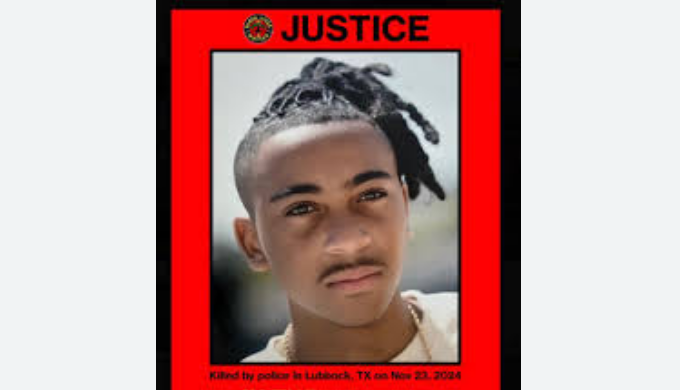Matt Jones
[Tribute To Matt Jones]
Matt Jones once said: “When I was young, I fought segregation. When I was young, I fought Jim Crow. Who would have thought, I’d still be fighting, 30 or 40 years down the line. When I was young, I fought for children. When I was young, I fought for love. Who would have thought, I’d still be fighting 30 or 40 years down the line.
Freedom, fighting for freedom, 30 or 40 years down the line. 50 or 60 years down the line.”
Three years ago today Matthew “Matt” Jones died in New York City at the age of 74 after over 50 years of activism and leadership in the struggle for freedom, justice and equality.
Matt is most known for his participation and leadership in the SNCC Freedom Singers, a group which traveled the country in the 1960’s building the civil rights movement and support for the Student Nonviolent Coordinating Committee. He wrote many songs, composing more than 500 over the course of his life.
Matt knew instinctively and acted upon these words of Irish revolutionary leader James Connolly, written in 1907: “No revolutionary movement is complete without its poetical expression. If such a movement has caught hold of the imagination of the masses, they will seek a vent in song for the aspirations, the fears and hopes, the loves and hatreds engendered by the struggle.” Matt provided many of the songs which were so important to the building of the Freedom Movement in the deep South in the 1960’s.
Matt was a dedicated “freedom fighter,” as he called himself until his last days. He was arrested 29 times during his years of on-the-front-lines activism in the deep South as part of SNCC. And most, if not all, of these were a different kind of arrest than what is often the case today at political protests. These were arrests by white police working for the interests of a racist white power structure that didn’t hesitate to use intimidation, violence and murder, if necessary, to keep black people “in their place.”
I had the good fortune to get to know and work with Matt and his soul mate and wife Shelley Jones over the last 20 or so years of his life. We took part with others for a number of years in 12 day fasts from October 1-12 as part of a Peoples Fast for Justice action calling for the release of Leonard Peltier and the renaming of October 12th as Indigenous Peoples Day. I learned that Matt had Cherokee ancestry, something which, he said, was true of more than a few African Americans. I attended and once spoke at the annual Martin Luther King, Jr. birthday programs organized by Matt and Shelley at the Advent Lutheran Church on West 93rd St. in Manhattan. He came to Brooklyn to speak before young people at a school where my wife, Jane Califf, was teaching. And we interacted in other ways over the course of those 20 or so years.
But what I will always remember with the warmest of memories about Matt is the role he played at Future Leaders Network Summer Retreats, particularly at the first one he attended in Ringwood, N.J. in the summer of 1988.
The Future Leaders Network was started in the late 1980’s by adult members of the National Committee for Independent Political Action and New African Voices Alliance. We did so because we saw the need to provide leadership skills and consciousness-raising for teenage young people who were interested in activism of some kind. Toward those ends, from 1988 to 1998 we organized a week-long summer retreat, long weekend mini-retreats over the course of the year and other activities attended by a multi-cultural mix of youth from around the country.
Our first summer retreat was held at an outdoor camp in northern New Jersey. It was a real roller coaster of an experience. For the first half of the week, from Sunday to Wednesday, the adult counselors struggled with the fact that many of the youth we had recruited were not the kind of potential leaders we had tried to recruit. They were a rebellious group, many of them from working class and low-income backgrounds, open to the need for social change, for sure, but who, in response to our expressed wish that they shape the week as much as possible, proceeded to act out and assert their independence in ways which sorely tested us.
But then Matt Jones arrived and performed Wednesday evening. He sang songs from his SNCC days, together with commentary about what it was like back then to nonviolently battle a deeply-entrenched, overtly racist power structure and segregation throughout the South. He brought up sister Gwen Patton, one of the counselors, and together they gave the young people and us older counselors a vivid, moving, soulful lesson about what it was like to battle on the front lines for freedom in a youth-led social movement.
After that, everything changed. The last half of the week was like another camp compared to the first half, giving us the successful week we needed to continue this youth leadership development work for 10 more years, involving hundreds of teenage young people from different parts of the country. Matt came to almost all of the next nine summer retreats, sharing important history in song that few of them were aware of before hearing about it at our retreats.
Matt didn’t beat around the bush. He let you know what he believed. He was honest. You could feel his love and interest in other people. He was an internationalist, demonstrated most clearly by his active support for the Palestinian and Irish freedom struggles in his later years. As a person who spent his early years in North Carolina, he would be very pleased about the development of the African American-led, Moral Mondays movement with its civil disobedience, massive demonstrations, breadth of participation and willingness to fight the powers-that-be. Without question, his spirit is present in that movement and in the lives of many of us who knew him.
The world is a better, more hopeful place because of the life, the work and the example of Matt Jones.
Ted Glick has been a progressive activist and organizer since 1968. More information and past writings can be found at http://tedglick.com, and he can be followed on twitter at http://twitter.com/jtglick








